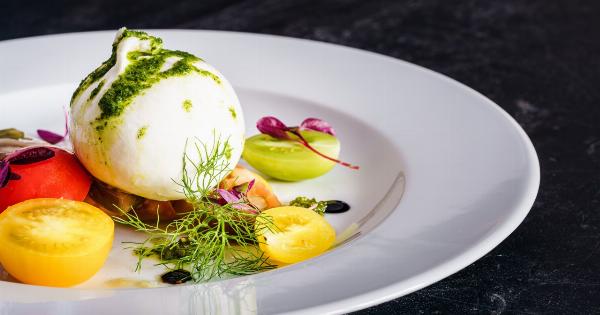Have you ever noticed how certain flavors can instantly transport you back to a specific memory or evoke strong emotions? Our taste buds have the remarkable ability to connect us with our past experiences, but did you know that our personality traits could also shape our flavor preferences? There is a growing body of research exploring the intriguing connections between personality and flavor, revealing fascinating insights into the ways our individual traits impact our culinary choices.
The Science Behind Taste and Preference
Taste is a deeply personal and subjective experience. Each individual has unique preferences and aversions when it comes to flavors.
However, studies have shown that there are some remarkable consistencies in flavor preferences among people with specific personality traits.
Research conducted by the Journal of Sensory Studies found that individuals who scored high on measures of openness to experience tended to have a greater preference for complex and intense flavors.
These individuals were more likely to enjoy spicy, bitter, and exotic tastes compared to their counterparts with lower openness scores.
In contrast, individuals with high levels of neuroticism were found to have a stronger aversion to bitter tastes. These individuals were more likely to find bitter flavors unpleasant and opted for milder and sweeter options instead.
The Extraversion Factor
Extraversion is a personality trait associated with being outgoing, energetic, and socially confident. Interestingly, individuals with high levels of extraversion tend to have a preference for sweet flavors.
A study published in the Food Quality and Preference journal revealed that extraverts were more likely to choose sweet desserts over other options.
This connection between extraversion and sweetness could be attributed to the rewarding effect of sugar on the brain. Sweet flavors activate the brain’s reward center, releasing dopamine and creating feelings of pleasure and happiness.
It is possible that extraverts are more drawn to these feel-good flavors, seeking the enjoyment and stimulation they provide.
The Impact of Conscientiousness
Conscientiousness is a personality trait characterized by traits such as organization, self-discipline, and a strong sense of responsibility.
Research suggests individuals with high levels of conscientiousness tend to have a preference for savory or umami flavors.
A study published in the Journal of Personality and Social Psychology found that conscientious individuals were more likely to enjoy savoring their food and paying close attention to the flavors.
Umami, often described as a savory or meaty taste, is associated with satiety and satisfaction. It is possible that conscientious individuals are drawn to umami flavors due to their ability to create a sense of fulfillment and completeness.
The Role of Agreeableness
Agreeableness is a personality trait associated with being compassionate, cooperative, and empathetic.
Individuals with high levels of agreeableness tend to have a preference for comfort foods, which are often associated with warmth, nostalgia, and a sense of well-being.
A study published in the journal Food Quality and Preference found that agreeable individuals were more likely to choose foods with familiar flavors, such as macaroni and cheese or mashed potatoes.
These comfort foods provide a sense of emotional comfort and security, which aligns well with the empathetic and nurturing nature of agreeable individuals.
Implications and Application
The connections between personality and flavor preferences have significant implications in various fields.
In the culinary world, understanding customers’ preferences based on their personality traits can help chefs and restaurants create more tailored dining experiences. By curating menus that cater to different personality types, establishments can enhance customer satisfaction and provide memorable dining experiences.
Additionally, this knowledge can be utilized in marketing and product development. Companies can analyze the personality traits of their target audience and tailor their flavors and marketing strategies accordingly.
By aligning the product’s flavor palette with the preferences of specific personality types, businesses can effectively attract and engage their target market.
The Influence of Culture
While personality plays a significant role in shaping flavor preferences, it is important to acknowledge the influence of cultural factors. Our upbringing, exposure to different cuisines, and societal norms all contribute to our taste preferences.
A study published in the Journal of Consumer Research found that culture significantly influences the connection between personality and flavor preferences.
The research discovered that while specific personality traits may lead to certain flavor preferences in one culture, the same personality traits may result in different flavor preferences in another culture.
Conclusion
The intriguing connections between personality and flavor preferences reveal the complex and multifaceted nature of our taste experiences. Our individual traits impact not only our culinary choices but also our perception and enjoyment of flavors.
Understanding these connections can provide valuable insights for the culinary industry, marketing strategies, and even personal growth.






























